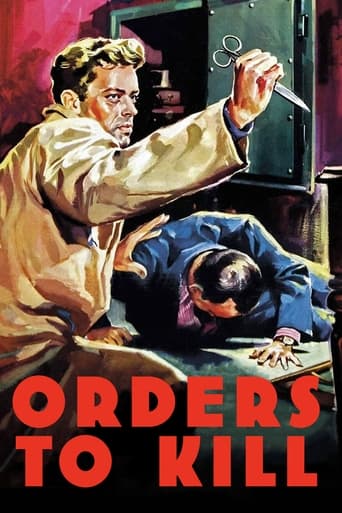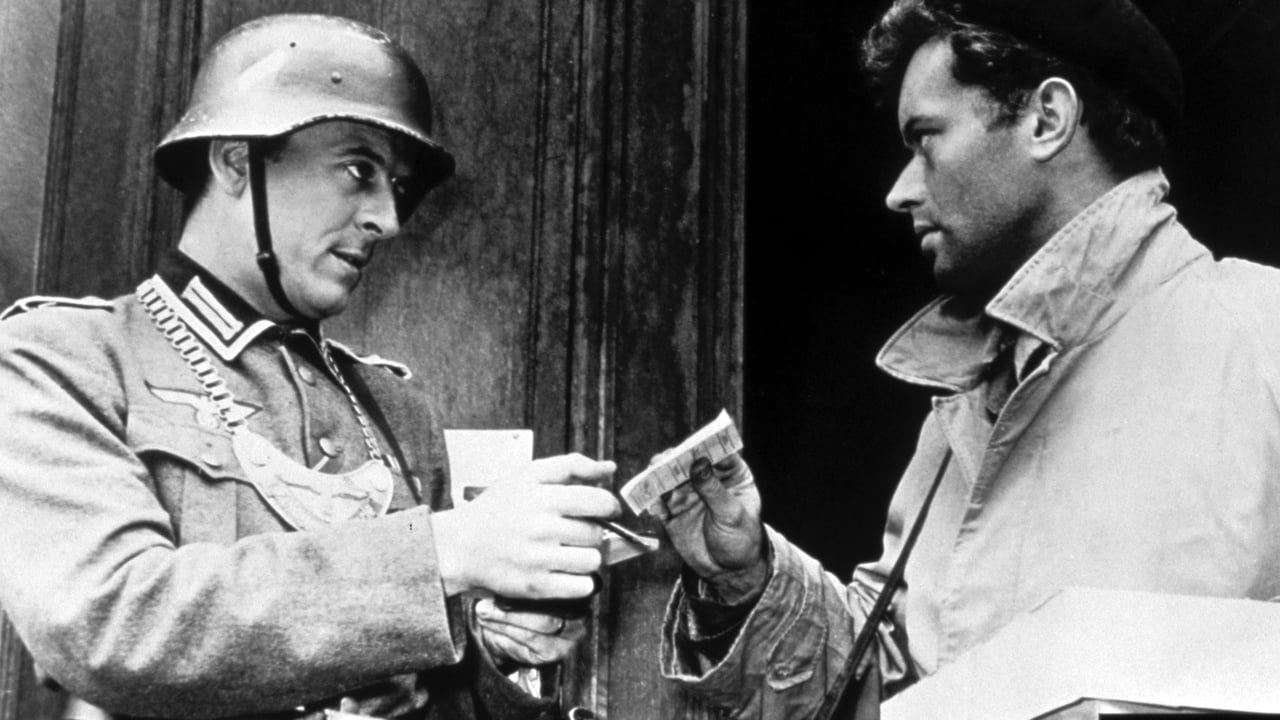writers_reign
Every Sunday in the UK Talking Pictures, a fairly new channel that screens only movies, publishes its schedule for the next seven days and I go through it checking titles I want to see; when I saw Orders To Kill I thought it would be well worth missing but then I noticed that it was directed by Puffin Asquith which made it almost obligatory. Asquith was responsible for some of the cream of British movies and forged an excellent writer-director partnership with Terence Rattigan, making him arguably THE English director of the 20th century despite Carol Reed and David Lean enjoying higher profiles. I wasn't disappointed; Orders To Kill is a fine movie with a moral question at its core. In brief; a man is recruited to kill a resistance worker suspected of treachery in World War II. The assassin undergoes training, is given a new identity and parachuted into France. Having met the target by chance he bonds with him and decides he is innocent, says as much to his 'contact' who reminds him he is under orders. He kills the target who, it turns out, is innocent. Irene Worth runs away with the picture as the 'contact' whilst newcomer Paul Massie succeeds in conveying the moral dilemma in which he finds himself. One of Puffin's finest.
Leofwine_draca
ORDERS TO KILL looks and feels like a straightforward wartime thriller at the outset. It features Paul Massie (the Canadian actor best known for playing the lead in THE TWO FACES OF DR. JEKYLL, a role he no doubt got on the strength of his fine conflicted performance here) as an American agent who is parachuted into occupied France to take down a French traitor whose association with various resistance fighters has seen many of them die.During his early training scenes with the delightfully gruff James Robertson Justice, Massie seems like the ideal man for the job. Things are a little different in the field: he soon finds himself questioning the man's guilt, and ORDERS TO KILL becomes a very different type of film all of a sudden: an intense 'moral dilemma' movie which puts the protagonist and the viewers through the ringer.The only fault I can find with this film is that it's slightly overlong and some of the early scenes drag a little. Otherwise, it's a delight, and a surprisingly mature and brutal effort for the era. Some of the scenes are so suspenseful and disturbing that they're almost unwatchable. An exemplary supporting cast really add to the authenticity of the piece, but the whole thing hangs on Massie's shoulders and he doesn't disappoint; I think it's fair to say that he peaked early in his career and was never better than here. ORDERS TO KILL is a fine thriller without a single action scene in it to distract from the storyline.
robert-temple-1
This wartime tale directed by Anthony Asquith confronts full-on the essential moral dilemma of the necessity to commit murder in the cause of war. It does not take place on a battlefield, but in the starker situation of a covert assassination of a man believed to be compromising the Resistance Movement in occupied Paris. The man chosen to kill the suspected person is played by the young actor Paul Massie, aged 26. It was his first credited screen role, and he does an excellent job. For some reason, this highly talented and promising young actor never achieved the prominence in his career which he would seem to have deserved. After 1973, he only worked four times (the last time in 1996), and he died in 2011. The other film for which he will be remembered is SAPPHIRE (1959, see my review). The most powerful performance in this film was delivered by Irene Worth, as the character Léonie. Massie is sent to Paris to kill the suspect man, and Worth is his contact, with whom some very tense scenes indeed transpire. Worth's embittered intensity is very convincing and deeply disturbing. Lillian Gish appears briefly early on in the film as Massie's mother, but it is not a significant part. Eddie Albert is very good as a commanding officer, and James Robertson Justice has immense gravitas and a suitably ominous quality as the man who trains Massie how to kill an individual quietly and quickly by taking off a pair of long socks and turning them into a murder weapon. Leslie French is superb as the unfortunate Marcel Lafitte, who is wrongly suspected of having betrayed the Resistance, whereas he is not only innocent but a gentle, caring soul who loves his family and his cat and would not hurt a fly. The film is based on a novel by the American author Donald Downes, another of whose novels was filmed as THE PIGEON THAT TOOK ROME (1962). This film starts very slowly because Asquith and his writers are so keen to make their moral point that they dwell on the minutiae of Massie's recruitment and training to carry out his assignment. Today that would be sketched in a couple of minutes, but in this film it takes a long time. Once the action gets going, the film becomes very tense indeed, and finally it becomes very grim, as we face the moral dilemma. Asquith was clearly determined to make this film in this way because he was trying to examine the dilemma and drive home its insolubility. In a sense, we could call this fifties film a true existentialist film, in keeping with the prevailing philosophy of that Heidiggerian decade. It explores 'what a man must do' and the 'nausea' following his actions. It bears some resemblance to the concerns of André Malraux, who in the novel MAN'S FATE contemptuously says that anyone who has not killed someone face to face is 'a virgin'. One wonders if Jean-Paul Sartre visited the set, steeped in nausea, and whispered existential doubts into the ear of the director. Much of it is filmed on location in Paris, and there are some very fine and atmospheric location shots. This film evidently meant a great deal to Anthony Asquith, who had a social conscience which he wore somewhat on his sleeve, and we owe him the consideration of listening to his message, which after all is a very worrying one, even if we find it deeply disquieting.
triviah
This is a quietly gripping movie about a man ordered to kill a traitor in wartime France. The protagonist bonds with his quarry and his family and agonizes over following his orders to kill. To find out whether he kills the man and whether he is guilty or innocent you'll need to see this.


 AD
AD


